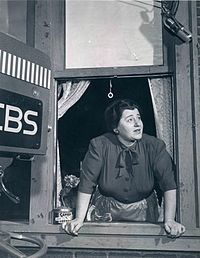When Nelson drove home from Montana this weekend, he came by way of a visit with my nephew Luke and his wife Emily in Wisconsin. After he got here, he brought in a giant storage bin and two big shopping bags, plunking them down in front of Birgitta. “From Emily,” he said. “For your baby.”
Inside were baby girl clothes to outfit our October baby for an entire year: infant gowns, onesies, booties, hats, dresses, sleepers, bibs, tights, shoes, 3-piece outfits, socks, towels, wash cloths, burping cloths, a snowsuit, and more. Emily even sent a typed inventory of larger items for Birgitta’s “yes or no:” a car seat, stroller, exer-saucer, Baby Einstein cds, Bumbo seat, baby carrier, Boppy, toys, and many other things. Everything was washed and neatly folded, the smaller items in labeled baggies.
As Birgitta held up one adorable outfit after another, we oooed and awwwed with delight at such unexpected bounty, high-quality, well-made baby clothes the likes of which she probably wouldn’t have been able to buy. Because of Emily, Birgitta won’t need to buy anything but diapers. We are humbled by this incredible generosity.
Emily is a stunning example of what God hopes all of us will do but many of us don’t. I remember the frustration of trying to teach our young children to share while I was making a meal for friends who’d just had a new baby. As I was packing up the dinner along with most of a batch of freshly-baked cookies, one of our younger boys said, “Hey! Don’t give away so many of those. You’re not leaving enough for us!”
“It’s important to share,” I told him.
“Why?”
“Because God wants us to, and because if we do, God will share with us.”
My little boy frowned.
Right after that I found this instructional verse for the kids: “Do not forget to do good and to share with others, for with such sacrifices God is pleased.” (Hebrews 13:16) I made them memorize it, hoping they’d swallow the message. What I’ve learned since then, though, is that I’m not all that good at sharing myself, even now. Rationalizing still comes easy: “I’d better not give that away; I might need it later.” Or, “That item has sentimental value. Wouldn’t it be wrong to part with it?”
Scripture says, “Be generous.” It doesn’t say, “If you feel like it” or “if you’re sure you don’t want it anymore” or “If it has no sentimental value.” It just says, “Give.” God knew it might be difficult for us to share, so he told us how to learn: force ourselves to do it.
And precious Emily has shown us how. In the handwritten note to Birgitta she’d tucked in with the clothes she wrote, “Keep what you want…
…and give the rest away.”
“Give, and it will be given to you. A good measure, pressed down, shaken together and running over, will be poured into your lap. For with the measure you use, it will be measured to you.” (Luke 6:38)








